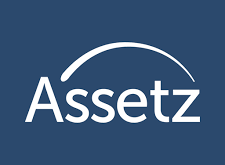New Delhi, 8th April 2025: With the Reserve Bank of India’s Monetary Policy Committee (MPC) set to announce its decision tomorrow, prospective homebuyers and individuals planning to take a home loan may have reason for optimism. The meeting, which commenced on Monday, April 7, will conclude with a press briefing by RBI Governor Sanjay Malhotra at 10:00 AM on Tuesday, April 9. Industry experts are anticipating a potential 0.25% reduction in the repo rate. If implemented, this could lead to a decrease in home loan interest rates, offering meaningful financial relief to those looking to invest in residential property.
Experts believe this potential rate cut could inject fresh momentum into the real estate sector. Easier project financing for developers and more affordable EMIs for buyers could create a positive environment in the market and boost housing demand. The announcement comes at a time when affordability and consumer sentiment are key drivers for the housing market, especially in metro and Tier-II cities. A rate cut would not only ease the financial burden on borrowers but also encourage fence-sitters to take the plunge into homeownership. Developers are also optimistic that such a move could help clear existing inventories and support new project launches. Overall, this policy decision may mark a refreshing start for the real estate industry in the new financial year.
Amit Modi, Director of County Group, said, After around three years of high growth, the real estate sector has entered a phase of consolidation. We hope that RBI takes this into account and considers lowering the repo rate by at least 50 bps from the 25 bps cut it had undertaken in its February MPC meeting. The move will increase liquidity and only provide a psychological boost to the market, especially at a time when new launches have slowed down and buyers are postponing real estate purchases
Dr. Gautam Kanodia, Founder of KREEVA and Kanodia Group, believes that in the upcoming monetary policy on April 9, the central bank may reduce the repo rate by 0.25%. If this happens, home loans will become more affordable, providing significant relief to homebuyers. This move is expected to boost demand in the real estate sector and give fresh momentum to the market. We believe that such a decision will enhance people’s purchasing power and also support the overall economy.
Sanjay Sharma, Director, SKA Group, said, The last rate cut was revolutionary considering that it came after about 5 years of continuing with the status quo. We hope that the RBI will take this a step further and announce a 50 bps decrease. Besides, increasing consumption will also boost the real estate sector which has entered a phase of slow growth in the last few months. Further, effects on the domestic market unleashed by the US President’s new tariff can also be effectively countered by the govt. by increasing the money supply, which again requires a rate cut by RBI.
Dr. Amish Bhutani, Managing Director, Group 108 said that the previous repo rate cut served as a much-needed catalyst for the commercial real estate segment. Lower borrowing costs have empowered developers to accelerate investments in real estate infrastructure, reinvigorating supply pipelines. Besides, both Retail & Office spaces are already witnessing growing interest from domestic enterprises and global occupiers eyeing expansion. In this context, we believe a further rate cut would reinforce market confidence, encouraging long-term commitments from investors and occupiers making it an attractive asset class
Yash Miglani, Managing Director, said RBI’s repo rate adjustments profoundly impact housing affordability and loan repayment terms. As the new governor lowered the benchmark rate by 25 basis points (bps) in the February monetary policy, the sector anticipates that RBI will maintain it in the upcoming announcement. Especially for developers, this move will ease the financial strain, opening up room to expedite ongoing projects and plan new launches. Given real estate’s sensitivity to price fluctuations, this steadiness could mark the beginning of a strong, sustained growth cycle for the sector.
Prakash Mehta, Chairman and Managing Director of Ocus Group, stated, “If the upcoming MPC meeting in April results in another repo rate cut, it would be a golden opportunity for homebuyers. A reduction in interest rates would not only ease the burden of EMIs but also encourage those potential buyers who have been waiting on the sidelines to finally make their move. This could infuse fresh momentum into the real estate sector and lead to sustained growth in demand.”
Harsh Gupta, CEO of Sundream Group, said, “We are hopeful about the upcoming RBI policy announcement. A rate cut at this juncture could serve as a much-needed incentive for those who have been holding back on home purchases due to high loan interest rates. With the real estate sector entering a phase of stability, a reduction in the repo rate would not only ease EMI burdens but also strengthen buyer confidence. A supportive stance from the RBI could further boost demand and accelerate overall economic activity.”
Kushagr Ansal, Director, Ansal Housing, shared, “We have high hopes from the upcoming RBI meeting. Since the new governor took charge, policy changes are clearly visible, and the recent repo rate cut is a strong indication of this shift. A further reduction in interest rates will bring much-needed relief to homebuyers and boost market sentiment significantly.”
Neeraj Sharma, Managing Director, Escon Infra Realtors, says,” In the last MPC meet, RBI signalled a proactive approach to the repo rate. We hope that the central bank will continue with this momentum and announce a further reduction in the repo rate. The real estate sector, after two to three years of rapid growth, is in the consolidation phase, and while the developers are waiting for a cue from the government the buyers too have been postponing real estate purchases. The move will not only reduce the home loan rates but will also boost the market’s sentiments”.
Ravindra Gandhi, Managing Director, Tirasya Estates. says, “We have high hopes for the forthcoming RBI meet. The new governor, after taking the charge signalled a shift in the central bank’s conservative stance and announced a reduction in the repo rate. It was a huge psychological boost for the sector. We hope to witness a repeat performance, especially at a time when new home purchases are being postponed. Moreover, lowering the repo rate will also add wings to the economy and promote the country’s growth, which ultimately will benefit the sector.”
Manit Sethi, Director, Extencia Infra, says, “if the RBI further reduces interest rates, it will significantly strengthen the real estate sector”. As home loans become more affordable, more people will decide to buy homes, leading to a sharp rise in demand, especially in the affordable and mid-segment housing categories. Additionally, lower interest rates will make it easier for developers to secure project funding, accelerating construction work and encouraging new project launches in the market. This will have a positive impact not only on real estate but on the overall economy as well
Viineet Chelani, Founder and CEO of Asset Deals, says, “The RBI kept the repo rate unchanged for several months, creating uncertainty in the real estate sector. However, with the appointment of a new governor, we have finally witnessed the much-awaited rate cut, bringing a wave of optimism to the market. Lower borrowing costs are a major win for homebuyers, making property ownership more accessible. At the same time, developers can now secure funding for their projects at more favorable rates. The key focus now is on consistency. We are hopeful that the government will sustain this momentum through supportive policies. This will not only ease the financial burden on buyers and investors but also ensure stable growth for the sector.”
Saurab Saharan, Group Managing Director, HCBS Developments , states, “For developers, a lower cost of credit plays a huge role in project finance management. With lower-cost capital available, real estate companies can speed up construction projects, launch new developments, and maintain a steady flow of housing units. We anticipate a rate cut that could fuel momentum in the industry, which also translates into the nation’s economic growth.”
Piyush Kansal, Executive Director, Royale Estate Group, says that the positive signs observed in the market after the previous rate cut confirm that buyers are becoming active once again. If there is another repo rate cut in April, it will further strengthen homebuyers’ confidence. As soon as there is relief in EMIs, even those who were only contemplating buying a home until now will be encouraged to take the step. We are hopeful that this will give a significant boost to the real estate sector.
Umesh Rathore, VP- Sales & Marketing at VVIP Group, says, “A reduction in RBI’s repo rate significantly lowers the cost of borrowing for banks, enabling them to lend at lower interest to developers and home buyers. As home loan rates decline, purchasing power rises, drawing in more consumers to the market. This not only benefits first-home buyers by lowering the price of homes but also lowers the financial burden on existing borrowers in the form of lower EMIs, thereby contributing to higher disposable income and economic activity in the housing market.”
Dr. Vishesh Rawat, Vice President and Head of Sales, Marketing & CRM at M2K Group, says, “A further reduction in interest rates by the RBI would offer significant relief to homebuyers. Lower EMIs would make homeownership far more attainable, particularly for middle-class families. This move could inject fresh momentum into the real estate sector, spurring demand and encouraging more people to invest in property. Ultimately, it would contribute to sustained growth across the industry.”
Ajendra Singh, Vice President – Sales and Marketing at Spectrum Metro Mall, says that if the Reserve Bank cuts the repo rate, it will directly impact the cost of borrowing, potentially revitalizing the commercial real estate sector. In particular, investment is expected to rise in office spaces, shopping malls, and high-street projects. A decline in inflation and a relief in interest rates could create a favorable environment for both developers and investors.
 Newspatrolling.com News cum Content Syndication Portal Online
Newspatrolling.com News cum Content Syndication Portal Online







